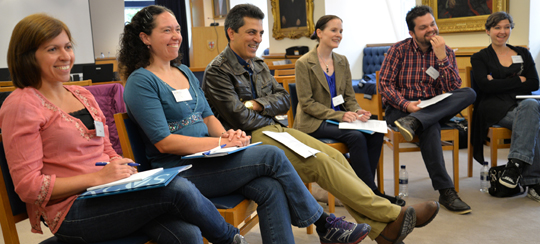-
-
- Council Members
- Role of Council Members
- Council meetings
- Council elections
- Previous election results
- Dr Louise Allum
- Dr Sam Bescoby
- Dr Andrew Clemence
- Dr Tshidi Gardiner
- Dr Reginald Godwin
- Paddy Gordon
- Dr Danielle Greenberg
- Dr Gerard Henry
- Dr Richard Hillman
- Dr Benjamin Kennedy
- Dr Tom Lonsdale
- Dr Darren Partridge
- Martin Peaty
- Alison Price
- Dr Peter Robinson
- Dr Jennifer Simmons
- Dr Sadie Spencer
- Dr Mary Thomas
- William Wilkinson
- Dr Lara Wilson
- Past-Presidents
-
-
-
-
-
- About extra-mural studies (EMS)
- EMS requirements
- Information for vet students
- Information for EMS providers
- Information for vet schools
- Temporary EMS requirements
- Practice by students - regulations
- Health and safety on EMS placements
- EMS contacts and further guidance
- Extra-mural studies fit for the future
-
-
- Code of Professional Conduct for Veterinary Surgeons
- Code of Professional Conduct for Veterinary Nurses
- Contact the Advice Team
- XL Bully dog ban
- 'Under care' - guidance
- Advice on Schedule 3
- Controlled Drugs Guidance – A to Z
- Dealing with Difficult Situations webinar recordings
- FAQs – Common medicines pitfalls
- FAQs – Routine veterinary practice and clinical veterinary research
- FAQs – Advertising of practice names
- GDPR – RCVS information and Q&As
Overseas vets enjoy an introduction to UK veterinary practice
15 September 2014
More than 50 overseas veterinary graduates either working or considering working in the UK attended a free day of continuing professional development (CPD) at our offices in Belgravia House, London.

The event, which took place on Wednesday 10 September, was jointly organised by us, the British Veterinary Association (BVA) and the Veterinary Defence Society (VDS) to give overseas graduates an introduction to life as a practising vet in the UK.
Vets from a diverse range of countries – including Iran, Mexico, Nigeria and Norway to name just a few – attended the day.
You also need to know the RCVS Code of Professional Conduct – it is not enough to just read it – you have to understand what it means and interpret it in the right way."
The aim of the day, which was opened by RCVS Registrar Gordon Hockey, was to reduce the risk of overseas veterinary surgeons having a concern raised against them and to advance communication skills.
A range of speakers from all three organisations were on hand to provide information in areas such as developing skills and knowledge, finding the right job, employment rights and the support on offer if a concern is raised against you.
One of the talks was given by Luis Sainz-Pardo, the Managing Director of VetAbroad – a company that provides coaching and consultancy to prepare non-UK vets for working in the UK.
Mr Sainz-Pardo, who is from Spain but has practised in the UK for many years, spoke about his experiences of working in the country and gave advice on subjects such as building a good relationship with clients and colleagues and how to fit in with the UK regulatory environment and practice life.
As part of his talk he said: “It is important to work with your clients and work with your colleagues, including veterinary nurses and other practice staff.
“You also need to know the RCVS Code of Professional Conduct – it is not enough to just read it – you have to understand what it means and interpret it in the right way. You need to pay attention to what it says and what it means so that you behave in a professional manner.”
Carolyne Crowe, a veterinary coach and mentor, also led a session on how to secure the right job, giving tips on how to stand out in the jobs market and writing a good covering letter and CV.
I feel that attending these events will now improve my confidence in the consultation room.”
On Thursday 11 September there was also a paid-for ‘master class in communication skills’ from the VDS, attended by 17 delegates. This featured role-play from professional actors to illustrate how vets can effectively communicate – including in difficult situations - during everyday working life.
Giulia Fano, a veterinary surgeon from Italy who is intending to work in critical and emergency care in the UK, attended both days and found them a useful introduction to working in the country. She said: “Because I am coming from another country where things are done quite differently I wanted to make sure that I start on the right foot in the UK and could see and learn about how things are done over here.”
George Marinopoulos, a Greek veterinary graduate who has been working in the UK since May 2013, attended the course because he wanted to improve his communication skills with clients. He said: “I found the role-play element very useful because I received tips on how to deal with situations such as having an upset client. I feel that attending these events will now improve my confidence in the consultation room.”
Lizzie Lockett, RCVS Director of Communications, added: “With attendees from 23 nationalities, Belgravia House became the United Nations for a couple of days. With overseas graduates making up such a key part of the UK veterinary workforce it’s really essential that we give them the support they need, and feedback from delegates suggests this has been a useful event.
“Spending time with such a lively group of diverse vets has also been a really rewarding experience for the RCVS team as it’s only by better understanding the challenges faced that we can offer appropriate guidance and help.”
Photos from the event can be viewed on our Flickr photostream.